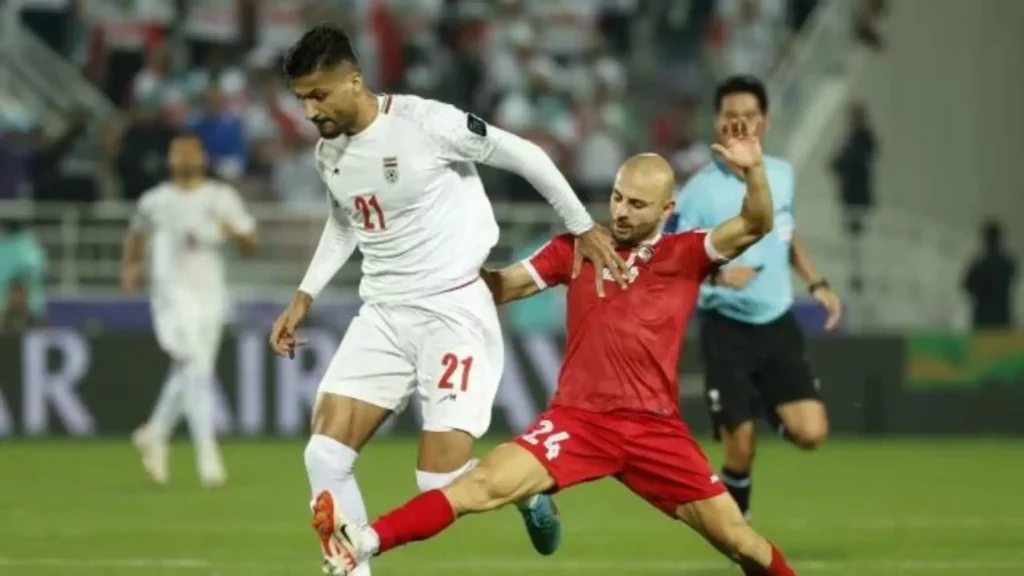The 2019 AFC Asian Cup quarterfinal match between Iran and Japan was one of the tournament’s most dramatic and memorable games in recent years. Iran defeated the favored Japanese side 2-1 in a match played in the United Arab Emirates on January 28, 2019. The match was full of twists and turns, fantastic plays, debatable refereeing decisions, and a buildup of tension that culminated in Iran scoring a late-game winner to advance to the semi-finals.
This comprehensive analysis examines the pivotal Iran vs Japan 2019 Asian Cup quarterfinal, recounting match events, key performances, critical moments, and the long-term significance of Iran’s hard-fought victory during their impressive campaign run.
Background and Context Leading Up to Match
Japan was favored going into the high-stakes Asian Cup knockout round game because it was the higher FIFA-ranked squad and the tournament’s perennial powerhouse. However, a tenacious and disciplined Iran team that had won all three of their group stage matches was confident and determined to keep pacesetting forward Yuya Osako and Japan’s usually prolific attack at bay.
The swirling context and subplots made for an enticing matchup. Iran sought to boost morale in the face of economic sanctions by making a deep run in the tournament. And Japan aimed to finally break through and win its first Asian Cup championship after finishing second and third in previous editions.
The quarterfinal stage increased the intensity of the competition, with the winner moving on to face Korea Republic in the semi-finals. What happened over 90 minutes of play was an instant classic in Asian Cup history.
Early Lead and Missed Opportunities for Japan
In an expected cagey start between two disciplined teams, Japan took control of possession and pressed up the pitch, eager to avoid falling behind first. Their hard work paid off in the 28th minute, when midfielder Gaku Shibasaki fired a stunning long-range strike into the upper corner from more than 25 yards away. The wonder goal gave Japan a 1-0 lead as the fancied side applied pressure.
Spurred on by their early lead, Japan continued to dictate the pace of play in search of a crucial second goal before halftime. Striker Yuya Osako nearly doubled their lead in the 38th minute, but his header went just over the crossbar. Iran’s goalkeeper, Alireza Beiranvand, also made a crucial save later in the half to keep Iran within reach after trailing by only one goal.
Iran Strikes Back with Equalizer
Reenergized to begin the second half, Iran took the game to Japan, demonstrating a greater urgency to find an equalizer. They gradually began winning more 50/50 balls and bringing possession closer to parity. Carlos Queiroz, Iran’s manager, brought in striker Sardar Azmoun to provide more attacking impetus.
In the 67th minute, star forward Azmoun scored by heading in a pinpoint cross from Mehdi Taremi to tie the game. The goal shifted the match’s momentum in Iran’s favor, just as Japan’s strong press began to tire. When Iran detected blood in the water, they kept their foot on the gas, applying pressure. Japan, reeling from coughing up their lead, fought hard to counter Iran’s buildup, coming dangerously close to having a player sent off after several questionable tackles went unpunished.
As the match approached full time, extra time appeared to be on the horizon, with chances coming from both ends during a frenetic final 10 minutes of regulation. But Iran’s late-game substitute, Saman Ghoddos, had different plans…
Ghoddos Delivers Game-Winner Deep into Injury Time
Iran orchestrated one final attack upfield through the right channel in the eighth minute of stoppage time, nearing the end of six total minutes of added time and with penalties becoming increasingly likely. Saman Ghoddos found just enough space to unleash a blistering strike on goal, which deflected off hapless defender Takehiro Tomiyasu, changing trajectories and nestling into the far bottom corner past Japan’s diving keeper Shuichi Gonda.
Iran’s bench and supporters erupted in celebration as the deflection sealed the dramatic 2-1 victory just seconds before the final whistle. Japan could only lament its late defensive breakdown after coming within a minute of extra frames. The winner from substitute hero Ghoddos propelled gritty Iran into the Asian Cup semi-finals, sending favorites Japan home in heartbreaking fashion despite dominating for long stretches.
The Long-Term Significance of Iran’s Victory
Iran’s resurgence to defeat title contenders Japan 2-1 in the dying embers of their Asian Cup quarterfinal held more significance than just a tournament victory. The dramatic comeback provided Iran footballers and fans with a brief respite from the country’s sobering economic challenges and harsh international sanctions. Saman Ghoddos’ late strike elicited feelings of pure joy and solidarity.
Their hard-fought victory also qualified Iran to face rival Korea Republic in a politically charged semi-final matchup between two nations divided ideologically but united by soccer. This provided direct momentum to Iran finishing runner-up in the tournament after narrowly losing the final, matching their previous best Asian Cup performance.
That Iran squad did their country proud by progressing so far, fueled by the belief that they could survive and advance against favored Japan when elimination was looming. Re-watching the wild final minutes of Iran’s 2-1 quarterfinal victory will forever symbolize the emotional rollercoaster ride that was Iran’s sensational 2019 Asian Cup campaign.
Conclusion
Iran vs Japan 2-1 in their dramatic 2019 AFC Asian Cup quarterfinal match, which featured twists and turns reminiscent of a classic knockout cup battle. Iran equalized in the second half, forcing extra time, before substitute Saman Ghoddos scored with a deflected last-gasp goal 6 minutes into injury time, propelling Iran into the final four. Their late comeback exemplified the grit and spirit displayed throughout the tournament. The significance of this victory catalyzed Iran to their best Asian Cup finish yet, bringing joy back home during a period of significant national hardship and adversity.

